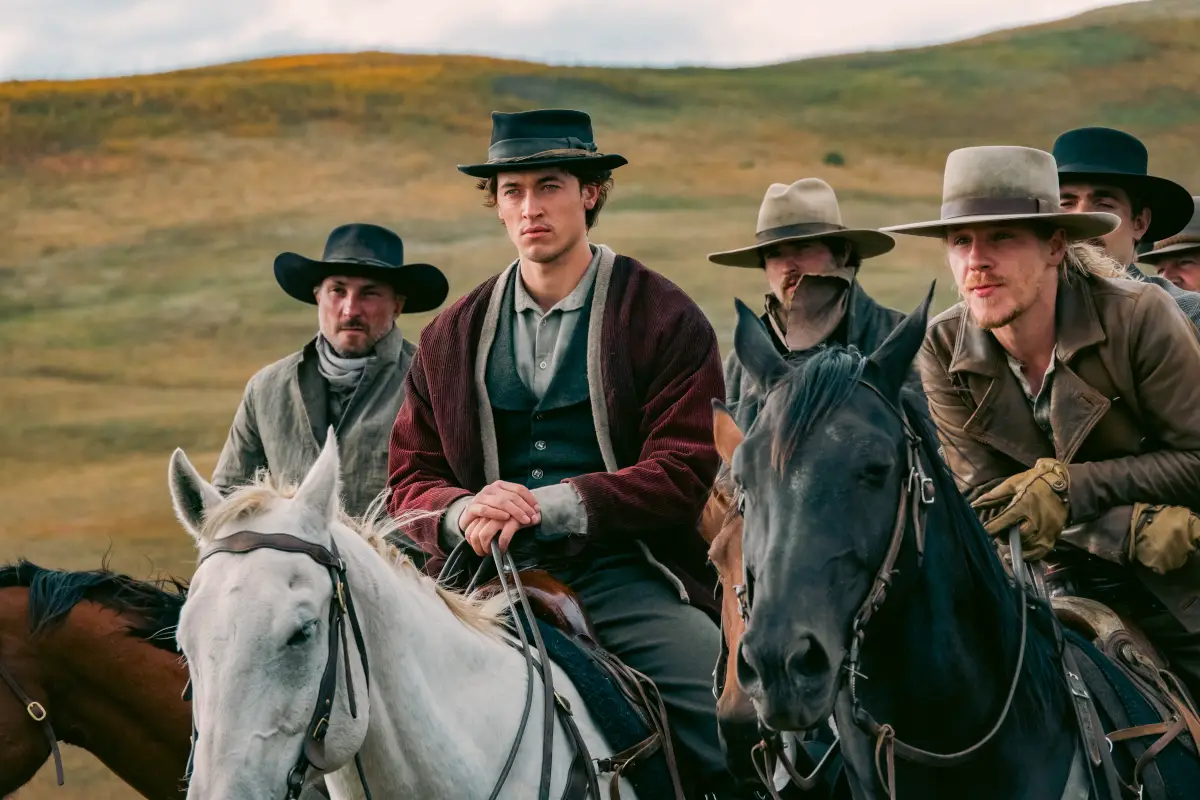After a detour back into Mexico to rescue his friend, Segura, from execution, Billy the Kid heads out to rendezvous with Jesse Evans and the rest of the gang. As he becomes more familiar with his new employer, he begins to question whether he is on the right side.
Lawrence Murphy and his colleagues are depicted as very one note, typical villains. They are so generic and without depth, you’d expect them to be twirling their mustaches as they plot nefarious deeds. There’s a level of entitlement and superiority considering their wealth. It rubs our protagonist the wrong way, especially when he is turned into the entertainment at a gathering.
The main reason Billy the Kid and the Seven River Gang are there is to serve as muscle and use fear to keep the small-time farmers in line. With the growing influence of their rival, John Tunstall, in the region, Murphy and company are desperate to maintain power. It seems all the newly hired guns don’t hesitate carrying out the orders with Evans and Pat Garrett shaking down the citizens much to Billy’s best efforts.
Much of the groundwork laid early on begins to pay off in “At the House.” The young Henry McCarty always stood up for the little guy and regretted the great injustices due to his humble upbringing. Now, as the most wanted man in the state, he has the reputation to make more of an impact for the less fortunate. The farmers, much like his childhood dishwashing partner, are Mexican, and watching them treated less than human ignites something within. This isn’t some sudden change of heart to be a good guy, but a quality that the series has played with the entire season.

It is also interesting to see how Jesse is treated differently. Maybe because he doesn’t hold the same standing, but the leaders of the Murphy side apply more pressure on Evans to be the brutal, hired thug. It’s as if the Seven Rivers Gang are held to a different standard. Daniel Webber executes the simmering jealousy just below the surface as he loses the spotlight, but it’s an impressive task to garner a little sympathy as well. His character carries the burden of doing the dirty work so that Billy the Kid can maintain his morality.
War is brewing and we meet some of Tunstall’s assembled forces including future Regulators, George Coe and Charlie Bowdre. They are depicted to be as good as Murphy and his people are evil. It’s not difficult to see who the supposed heroes are. But the series seems to oversimplify the future conflict when there was more of a gray area on both sides as opposed to clear cut black and white distinctions.
It’s also curious how quickly they embrace the possibility of Billy joining their side. I know the gunslinger has definitely stood out for his compassion and level head, and they have a history of turning Murphy associates to their side such as Alex McSween. Still, in war, I feel there should be a more cautious approach to these things.
A few other notes on the episode are how unsubtle the introduction of Irene Riley, the wife of Johnny Riley, is. The moment she walks in, you know she will be trouble with her overly aggressive interest in Billy. The fact that she’s married to one of the bosses will surely complicate things. On a positive note, the show’s score does a good job lifting the material with added emotion while complementing the tone. Sometimes that’s the only source of feeling considering the unimaginative writing.
The penultimate season one episode is building to the exciting Lincoln County War, but the new characters introduced create a wanting of more complexity.
New episodes of Billy the Kid are released Sundays on EPIX.
Join the AIPT Patreon
Want to take our relationship to the next level? Become a patron today to gain access to exclusive perks, such as:
- ❌ Remove all ads on the website
- 💬 Join our Discord community, where we chat about the latest news and releases from everything we cover on AIPT
- 📗 Access to our monthly book club
- 📦 Get a physical trade paperback shipped to you every month
- 💥 And more!














You must be logged in to post a comment.